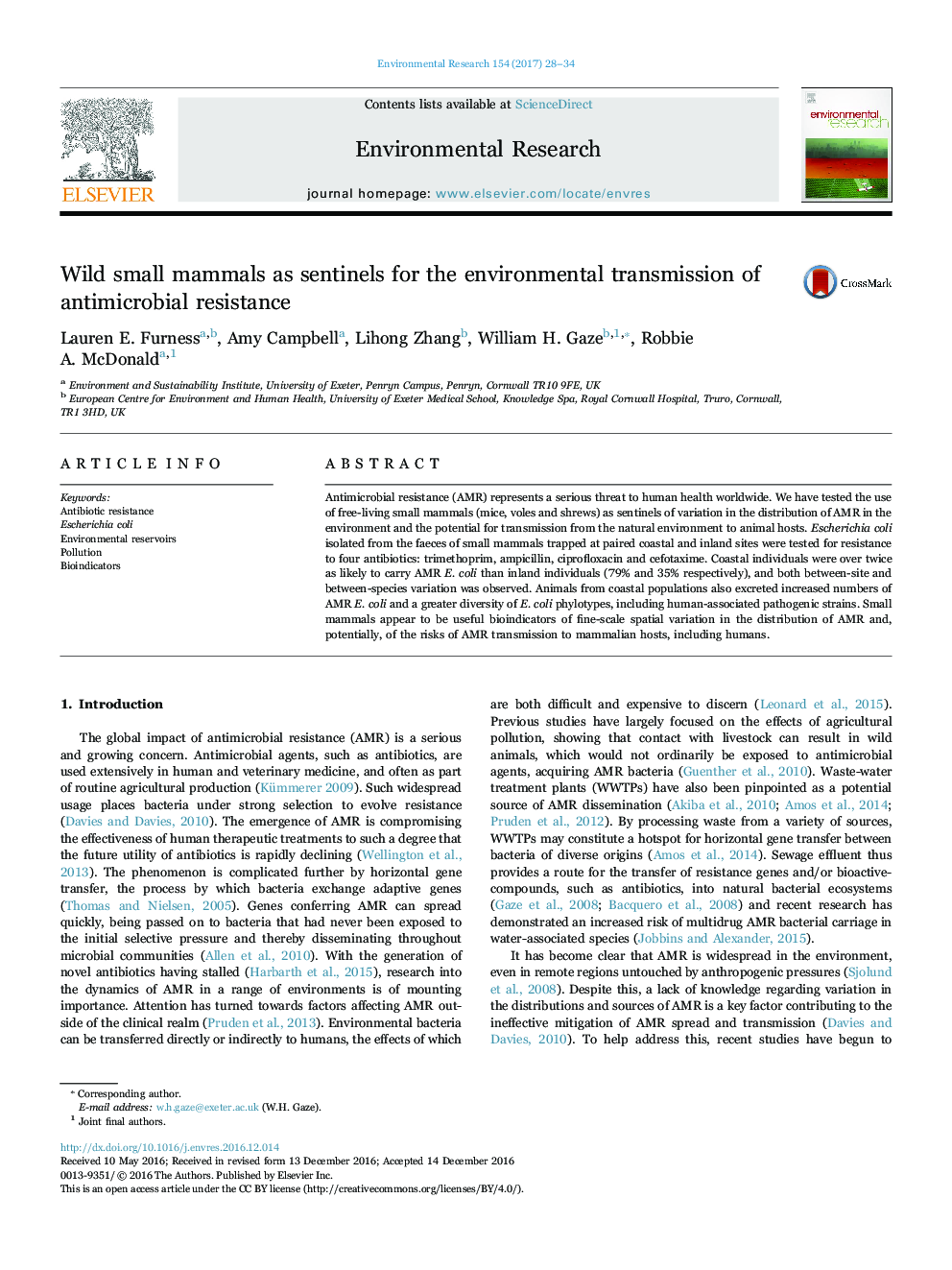| Article ID | Journal | Published Year | Pages | File Type |
|---|---|---|---|---|
| 5756414 | Environmental Research | 2017 | 7 Pages |
Abstract
Antimicrobial resistance (AMR) represents a serious threat to human health worldwide. We have tested the use of free-living small mammals (mice, voles and shrews) as sentinels of variation in the distribution of AMR in the environment and the potential for transmission from the natural environment to animal hosts. Escherichia coli isolated from the faeces of small mammals trapped at paired coastal and inland sites were tested for resistance to four antibiotics: trimethoprim, ampicillin, ciprofloxacin and cefotaxime. Coastal individuals were over twice as likely to carry AMR E. coli than inland individuals (79% and 35% respectively), and both between-site and between-species variation was observed. Animals from coastal populations also excreted increased numbers of AMR E. coli and a greater diversity of E. coli phylotypes, including human-associated pathogenic strains. Small mammals appear to be useful bioindicators of fine-scale spatial variation in the distribution of AMR and, potentially, of the risks of AMR transmission to mammalian hosts, including humans.
Related Topics
Life Sciences
Environmental Science
Health, Toxicology and Mutagenesis
Authors
Lauren E. Furness, Amy Campbell, Lihong Zhang, William H. Gaze, Robbie A. McDonald,
